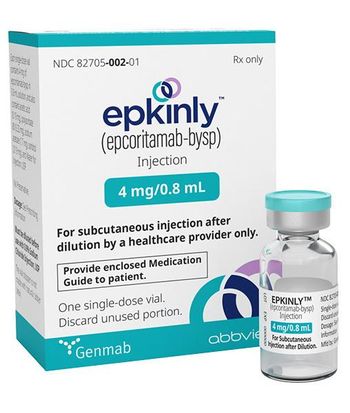
Panel Delivers Recommendations for the Cancer Moonshot
A Blue Ribbon Panel of experts from diverse healthcare fields has provided preliminary recommendations to achieve the objectives of the government's Cancer Moonshot initiative.
Direct patient engagement, developing a cancer immunotherapy clinical trial network, and providing support to manage patient-reported symptoms—these are some of the recommendations provided by an exclusive committee appointed to lead the White House's Cancer Moonshot initiative. The so-called Blue Ribbon Panel is a mix of scientific experts in biology, immunology, genomics, diagnostics, bioinformatics, and cancer prevention and treatment. Representatives from cancer advocacy groups and the pharmaceutical and biotechnology industry are also represented on this team.
In its preliminary
Seven working groups, with a similar diverse composition of experts from various fields, listed 2 to 3 significant research opportunities in the following areas:
- Clinical trials
- Enhanced data sharing
- Cancer immunology
- Implementation science
- Pediatric cancer
- Precision prevention and early detection
- Tumor evolution and progression
With the objective of improving various aspects of these 7 areas, the following specific recommendations were made:
- Direct patient engagement to offer patients the opportunity for comprehensive tumor profiling. Gathering patient data through linked databases will improve “precision” care and also match patients with appropriate clinical trials.
- Develop a national cancer immunotherapy clinical trial network to improve cure rates and eventually develop vaccines to prevent cancer.
- Create a National Cancer Data Ecosystem to gather, share, and connect datasets to facilitate discovery and improve patient outcomes.
- Increase understanding of fusion oncoproteins resulting from chromosomal translocations that are responsible for several pediatric cancers to potentiate new therapeutic approaches.
- Provide additional support for personalized care research in the field of symptom management throughout the cancer care continuum to improve patient quality of life and subsequently improve treatment adherence.
- Focus on implementation science to develop cohesive strategies that include the patient, caregivers, and family members; healthcare providers and health systems; and the community as a whole. The committee recommended directing prevention and screening efforts toward human papillomavirus vaccination, colorectal cancer screening, and tobacco control, as well as identifying individuals genetically predisposed to cancer.
- Create a human tumor atlas that documents genetic lesions and cellular interactions that map tumor development to help prevent cancer, identify new therapies, and avoid resistance development to existing treatments.
- Enable development of new cancer technologies such as implantable microdosing devices in tumors, new patient-derived tumor models, advanced imaging technologies, and computational platforms for data integration.
The working groups also made some policy recommendations including coverage and reimbursement, patient consent, fragmented care delivery, and barriers to data sharing.
The report provided health policy groups with evidence that can further their lobbying efforts to Congress to fund the Cancer Moonshot initiative.
“They needed to see a plan,"Jon Retzlaff, MBA, MPA, managing director of Science Policy and Government Affairs at the American Association for Cancer Research,
A final comprehensive report, which will help establish a cancer research agenda in the nation, is expected by the end of 2016.
Newsletter
Stay ahead of policy, cost, and value—subscribe to AJMC for expert insights at the intersection of clinical care and health economics.
















